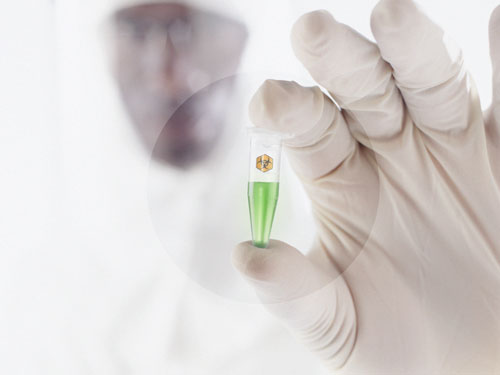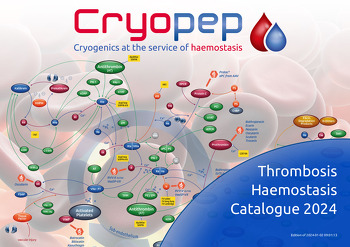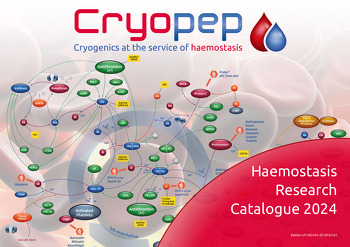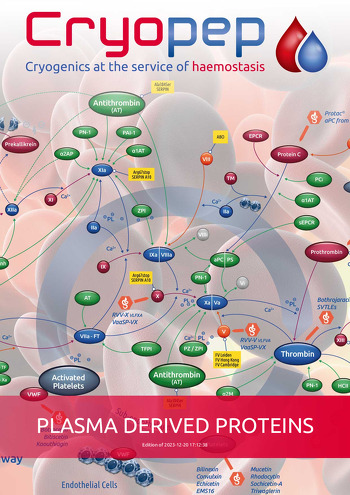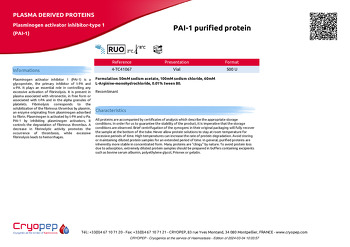Plasminogen activator inhibitor 1 (PAI-1) is a glycoprotein, the primary inhibitor of t-PA and u-PA. It plays an essential role in controlling any excessive activation of fibrinolysis. It is present in plasma associated with vitronectin, in free form or associated with t-PA and in the alpha granules of platelets. Fibrinolysis corresponds to the solubilization of the fibrinous thrombus by plasmin, an enzyme originating from plasminogen adsorbed to fibrin. Plasminogen is activated by t-PA and u-Pa. PAI-1 by inhibiting plasminogen activators, it controls the degradation of fibrinous thrombus. A decrease in fibrinolytic activity promotes the occurrence of thrombosis, while excessive fibrinolysis leads to hemorrhages.
All proteins are accompanied by certificates of analysis which describe the appropriate storage conditions. In order for us to guarantee the stability of the product, it is imperative that the storage conditions are observed. Brief centrifugation of the zymogens in their original packaging will fully recover the sample at the bottom of the tube. Never allow protein solutions to stay at room temperature for excessive periods of time. High temperatures can increase the rate of protein degradation. Avoid storing or maintaining diluted protein samples for an extended period of time. In general, purified proteins are inherently more stable in concentrated form. Many proteins are "clingy" by nature. To avoid protein loss due to adsorption, extremely diluted protein samples should be prepared in buffers containing excipients such as bovine serum albumin, polyethylene glycol, Prionex or gelatin.




